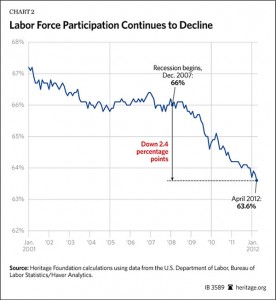So once you convince people/corporations with money to do what they already want to do, then you need to hire people to do those projects.
Here’s where you hire people. The people you’re going to hire are young, they’re social-media aware (they’ve been using it for all their adult lives, after all), and they are eager to learn new jobs. Which is GREAT, because most of the in-demand jobs of 2012 didn’t exist 5 years ago. Think I’m crazy – then tell me who was hiring a social media manager back in 2007? Who was developing iPhone apps? Oh wait – Facebook’s only been relevant for the past 3 years and iTunes started allowing indy developers to submit apps back in 2008.
So you’re in charge and as such you have 3 things to do
1.) convince locked-up money to flow again (talking about corporations)
2.) train up your team
3.) have a plan in place for the company, the team, and yourself
The first point we talked about in Post #1. The second point – training your team – is tough. Basically, you’re an around-the-clock teacher. Look into skillshare.com or codeschool for a myriad of classes to help yourself and the team, but primarily you’re going to be training people after-hours, off the clock. This is exhausting but essential. Investing in your people will pay off in two ways: 1.) they’ll do things *your way* and 2.) it solidifies trust and loyalty. The difference between consulting and a business is the ability of the owner to train up and hire others, not just himself/herself.
The third point is to have a plan for your people. You need a 6-12 month roadmap for people, even if that roadmap never comes into fruition. If you don’t have a vision for that person’s future, they probably don’t have much of one for your company….so don’t bother hiring. The roadmap should have goals, milestones to achieve those goals, and a listing of challenges that are on the road in front of the milestones. This is the same vision to have for yourself and your company.
I am going on the assumption that you’re not a “fail-fast” start-up where you’re constantly experimenting, hiring, and pivoting. I really hate failing – fast or slow.
Next post we’re going to talk about why it’s important to job-create, and why in the next few years we need to do it PRONTO

